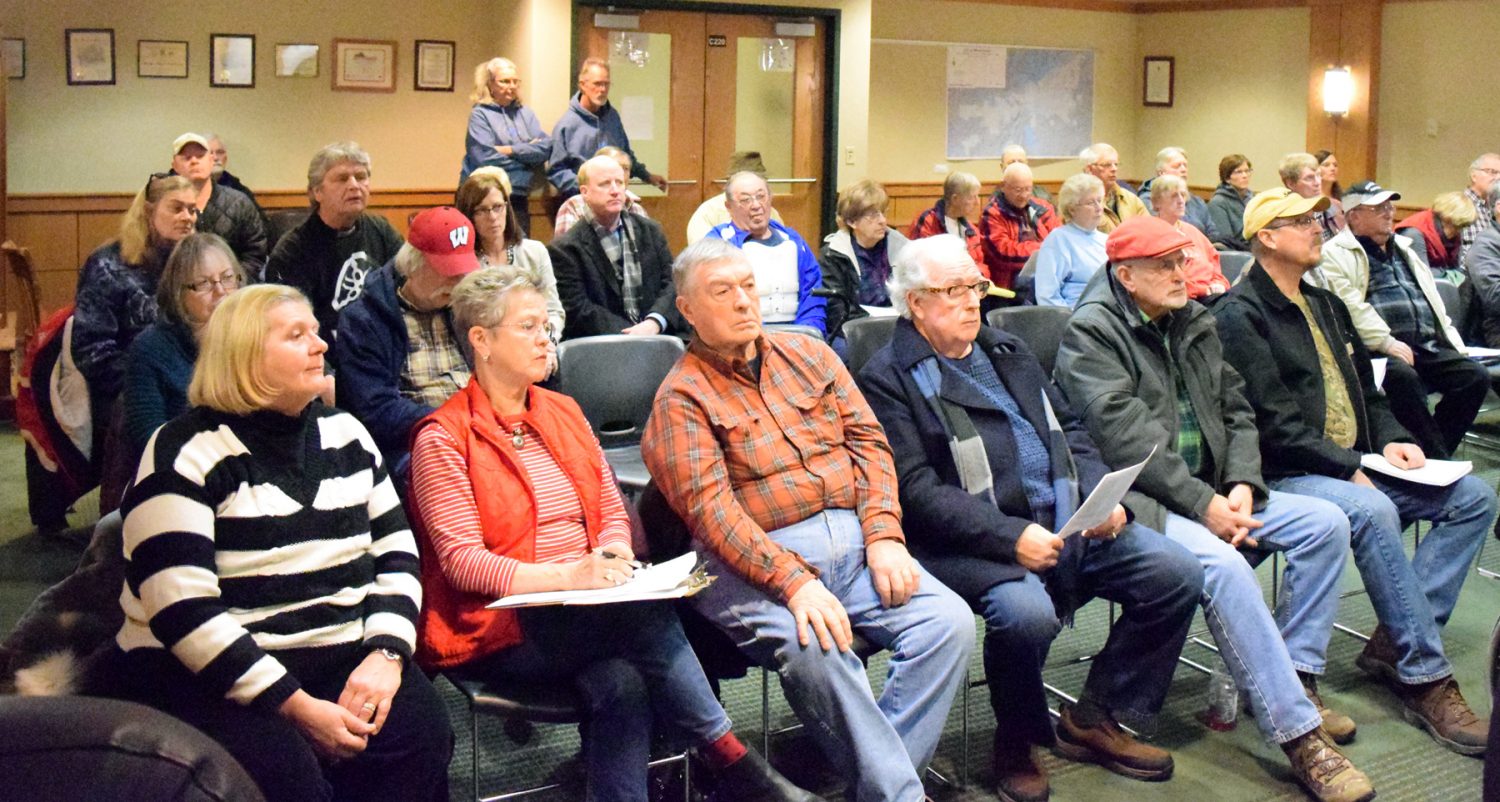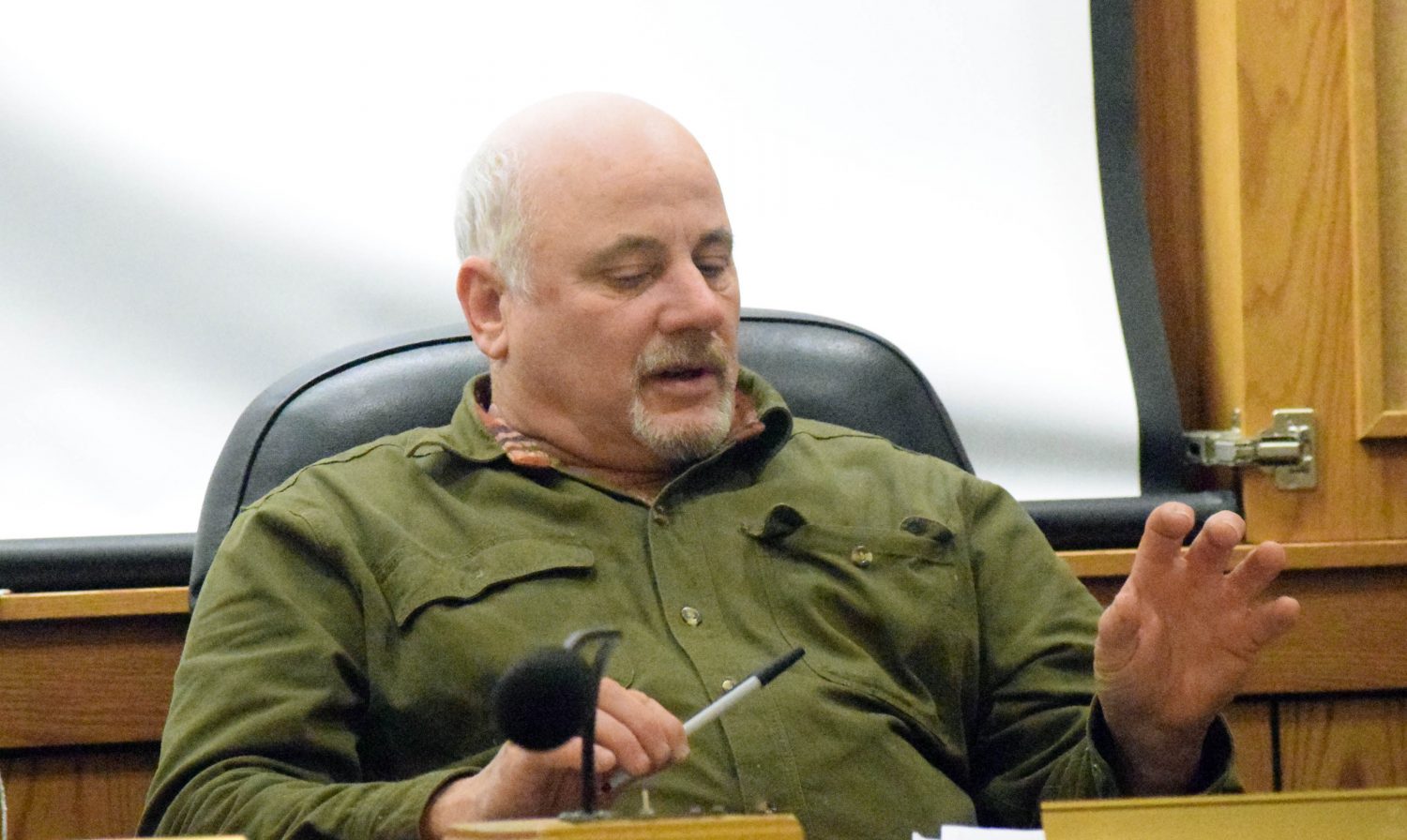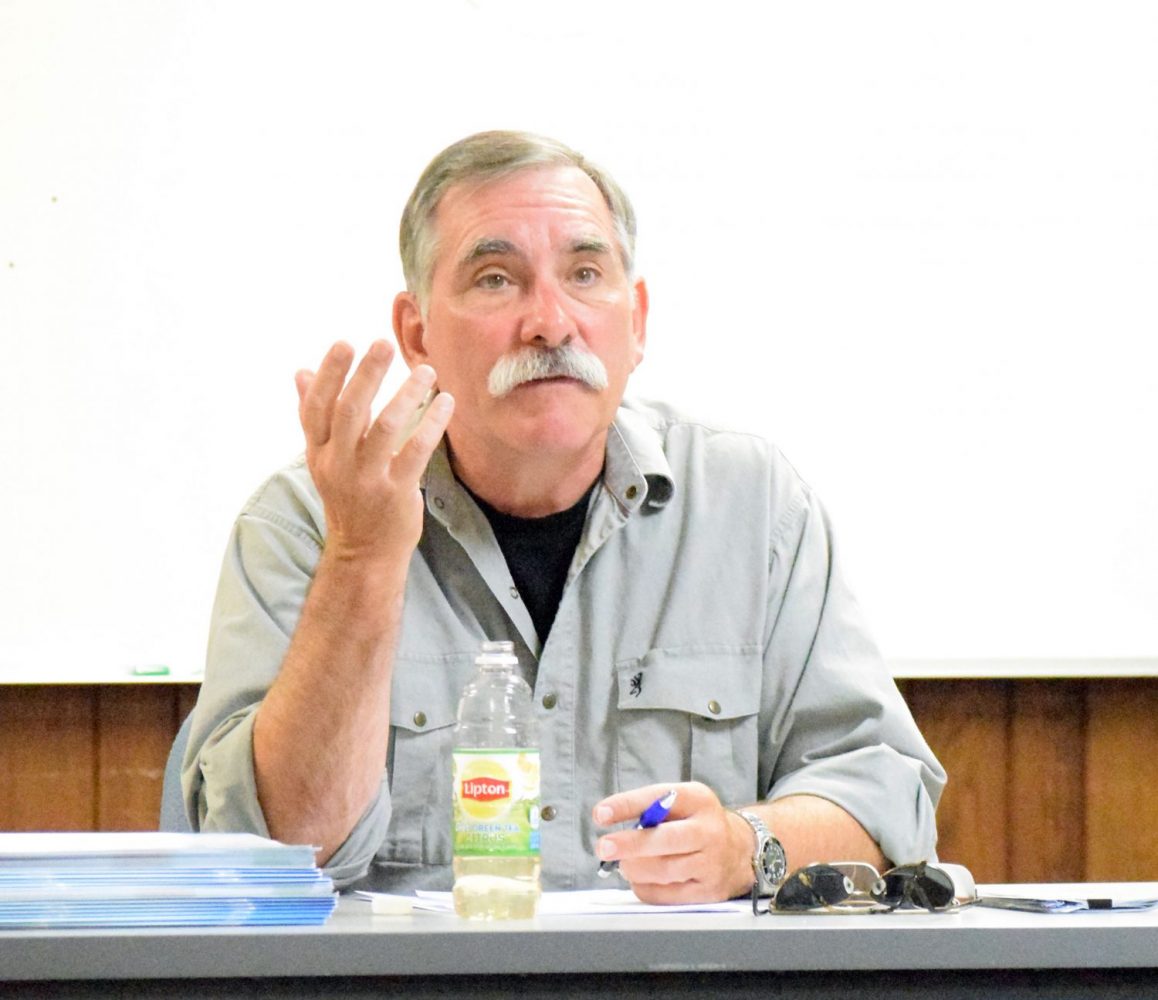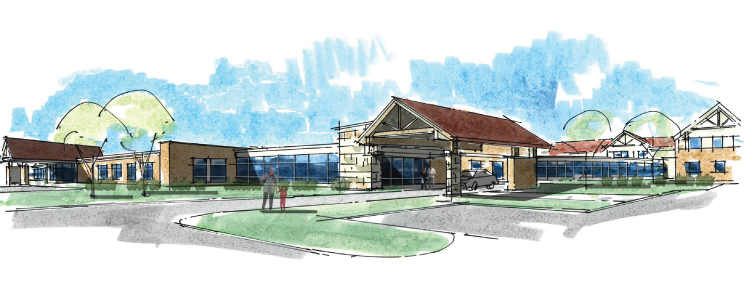Permit for Oneida County adolescent recovery, wellness center denied
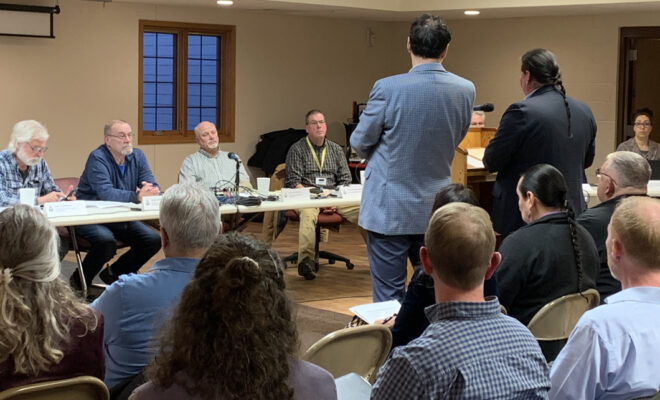
In this file photo, GLITC CEO Bryan Bainbridge, standing at right, and attorney Rodney Carter address the Oneida County Planning and Development Committee during a public hearing Dec. 28. Star Journal photo.
By Eileen Persike
Editor
RHINELANDER – The Oneida County Planning and Development Committee has denied the conditional use permit sought by the Great Lakes Inter-Tribal Council to build an adolescent recovery and wellness center in Cassian.
Debate on the CUP has been ongoing since GLTIC held a ground blessing ceremony in July that brought tribal members from across the state, Gov. Tony Evers and several members of his cabinet to Oneida County.
In September, six weeks after the ground blessing, the Cassian Town Board passed a resolution opposing the project. A public hearing on the CUP request was held Dec. 28 in Woodruff, after which the planning and development committee voted to hold off on a decision, extending the review period another 180 days.
On April 3 the committee met again and voted unanimously to deny the permit, “based on not meeting the general standards of approval,” said committee chairman Scott Holewinski.
Before the vote, Cassian Town Chair Patty Francoeur restated the town’s opposition.
“We are a rural community; we understand growth is inevitable,” Francoeur said. “We want the right to say what and where that should be and how it will impact not only our town but our neighboring communities.”
The Oneida County zoning ordinance chapter nine looks at the purpose and process for conditional use permits. Chapter nine, article 4-3 outlines specific criteria the committee can use to make their decision. The committee addressed criteria that looked at such things as the proposed center’s impact on public health and enjoyment of neighbors, whether the proposed CUP is compatible with the local land use plans, whether adequate utilities are or will be put in place and one that was added by Holewinski, would the tax base be protected.
“One of the major things in there is the property values in the area. And if property values are going to go down if we allow this…I think that’s a major part of denying the CUP,” Holewinski said. “The burden is on the applicant and [GLITC CEO Bryan Bainbridge] hasn’t supplied it.”
GLITC has the right to appeal the decision to the Board of Appeal.
“Every day this project is delayed, we lose another day where we could save a kid’s life,” Great Lakes Inter-Tribal Council CEO Bryan Bainbridge said in a statement to Star Journal. “The demand for this recovery center won’t magically disappear, which is why our goal continues to be building this life-saving facility for children fighting addiction.”
If the denial is not overturned, per county zoning laws, GLITC would be required to wait a year for the CUP to be considered again. Bainbridge did not address what the organization plans to do next.
Leave a reply
You must be logged in to post a comment.

